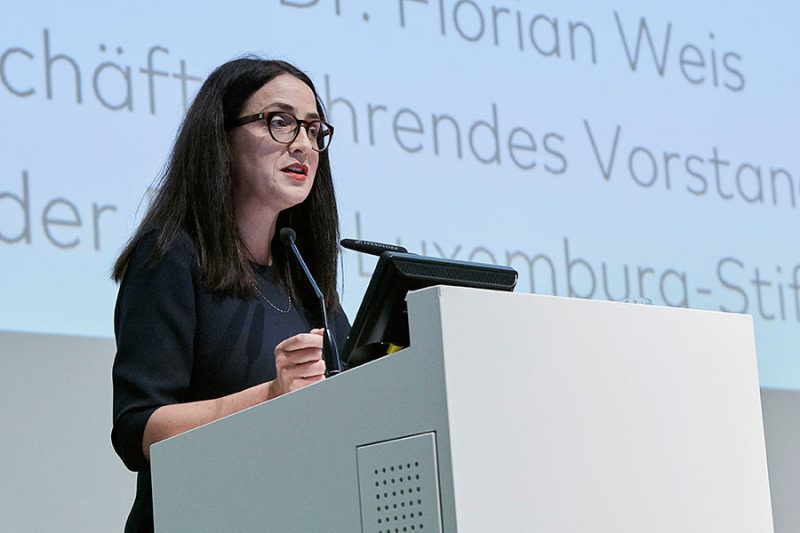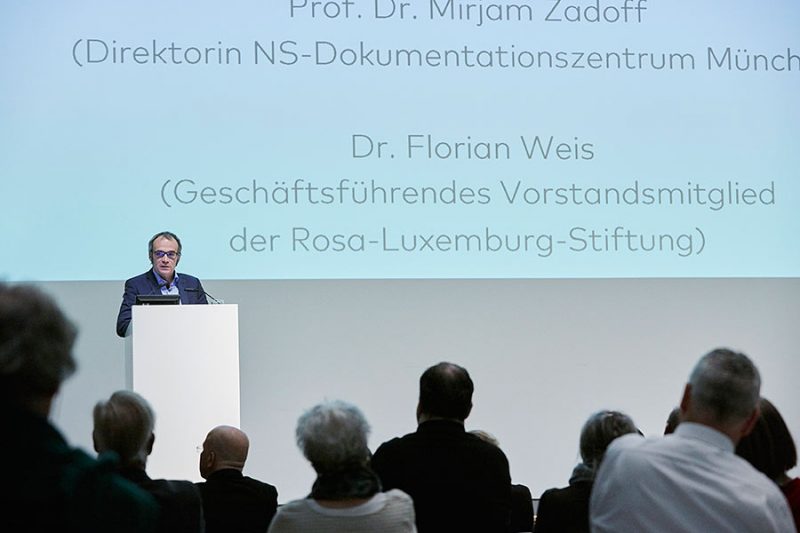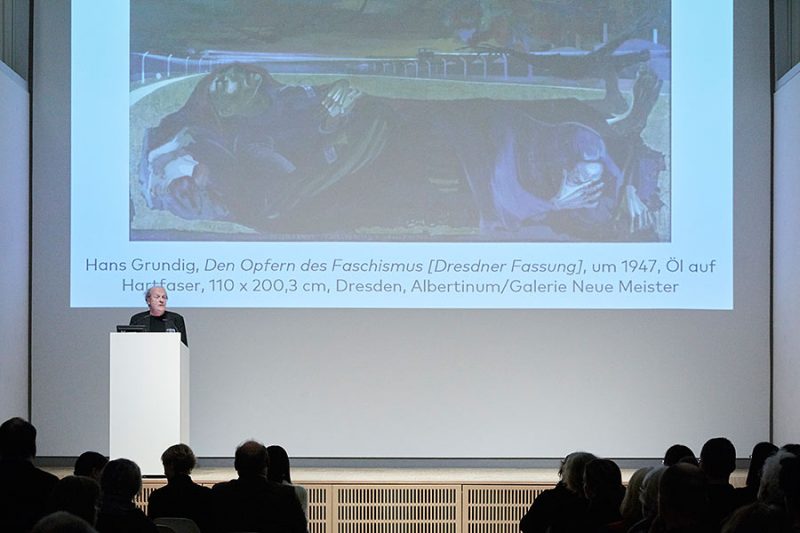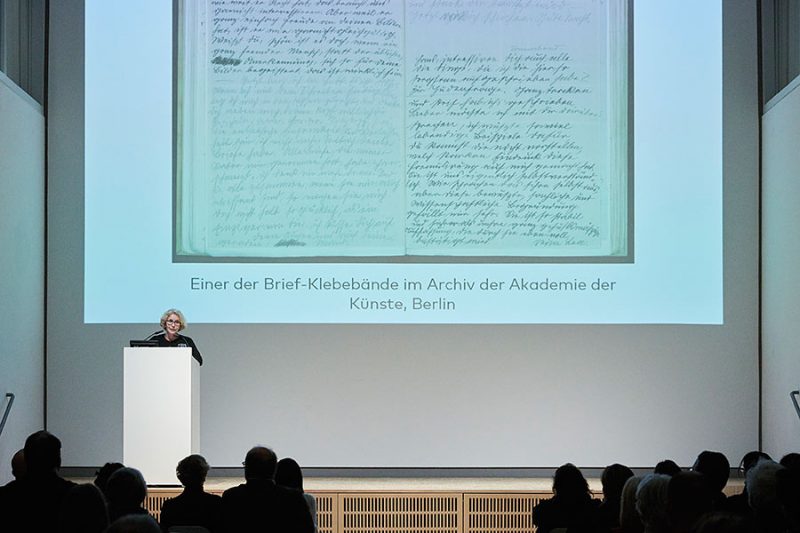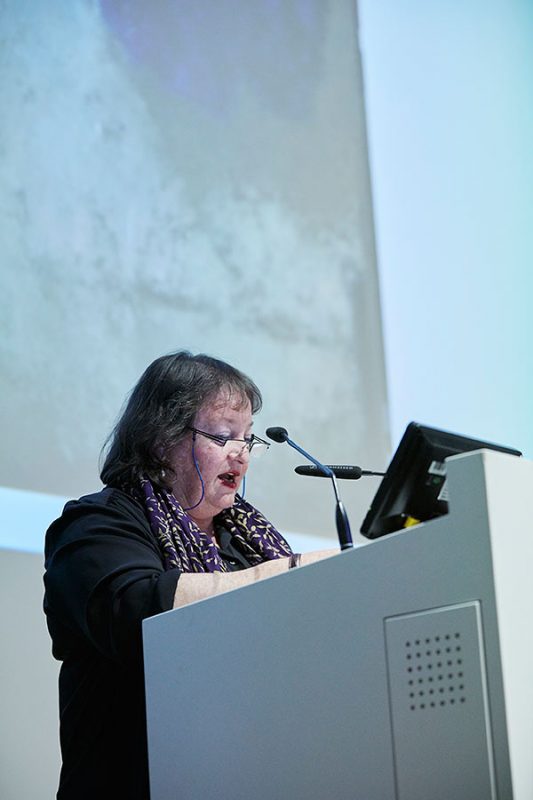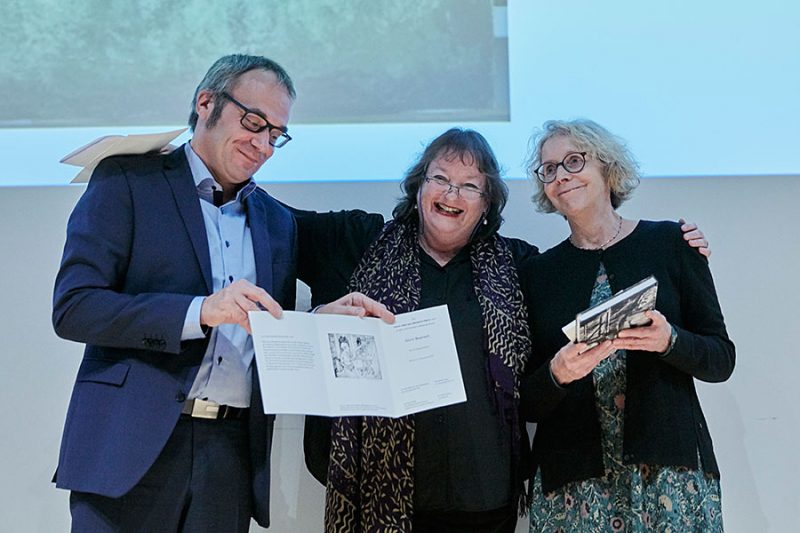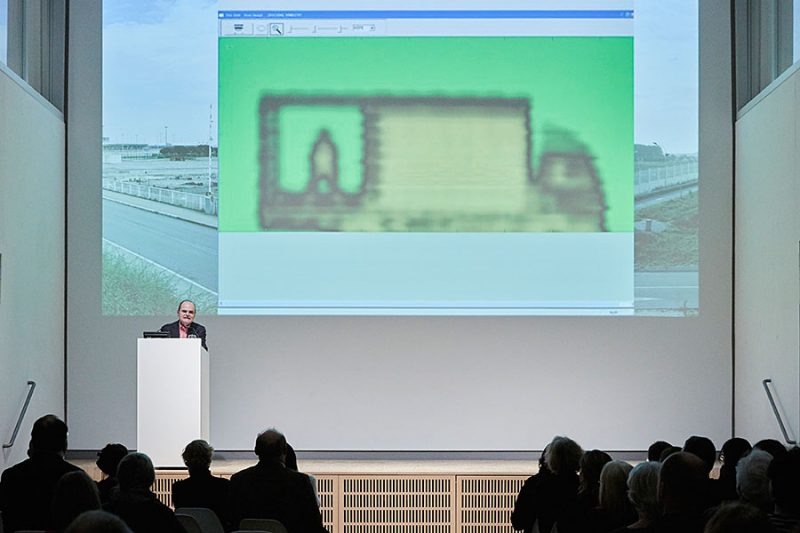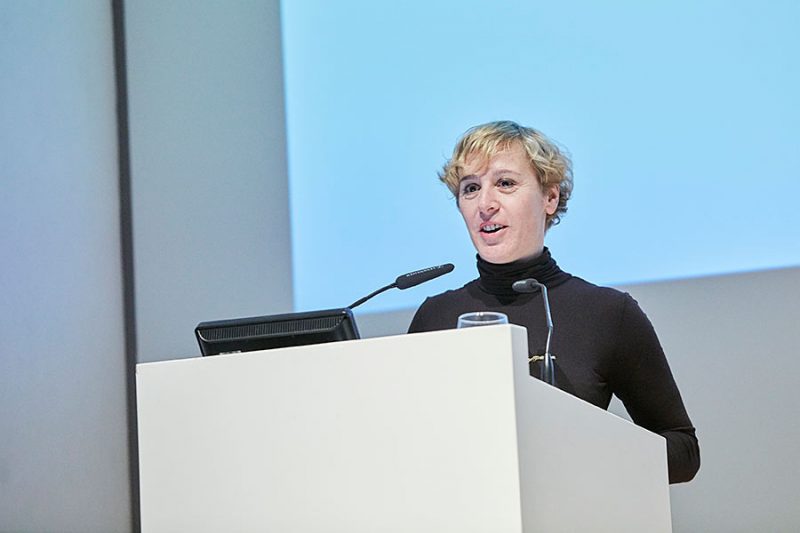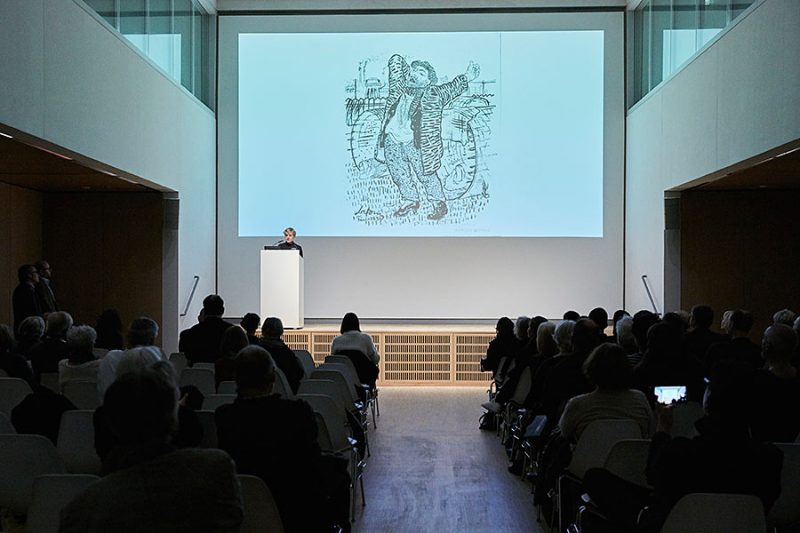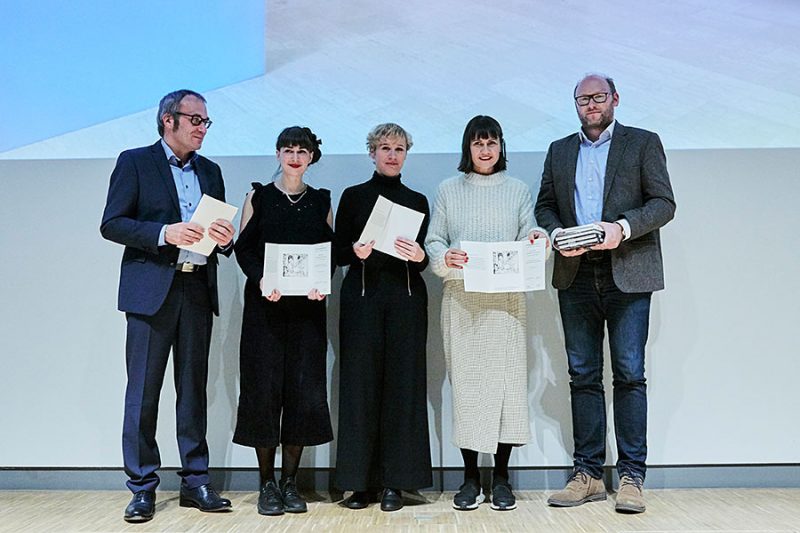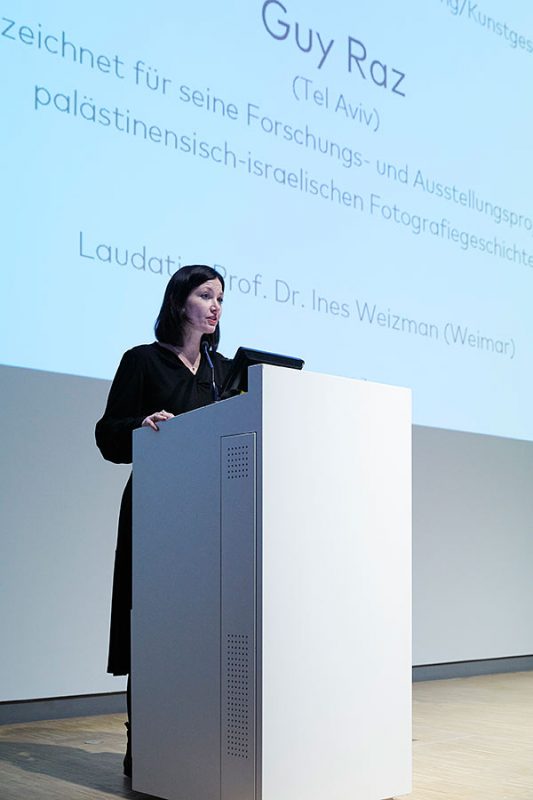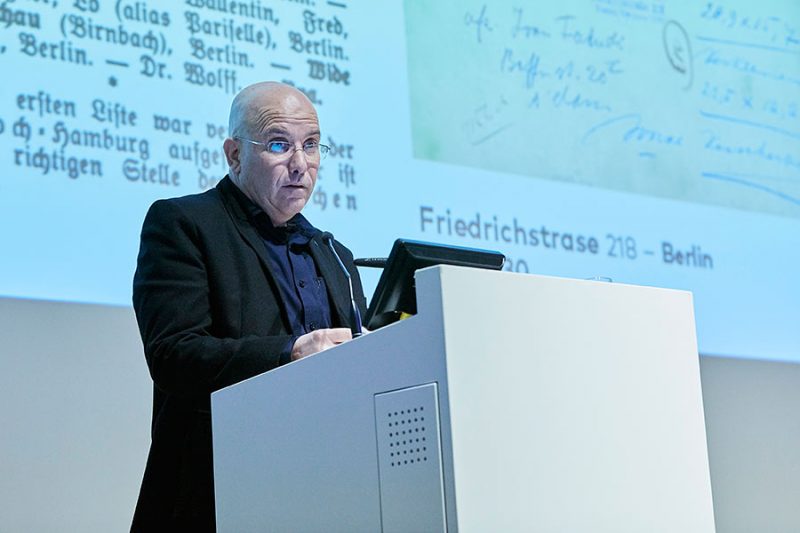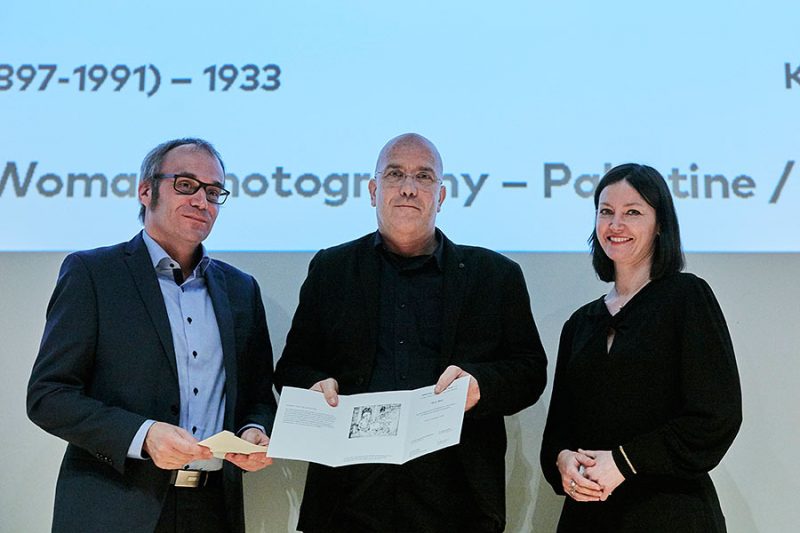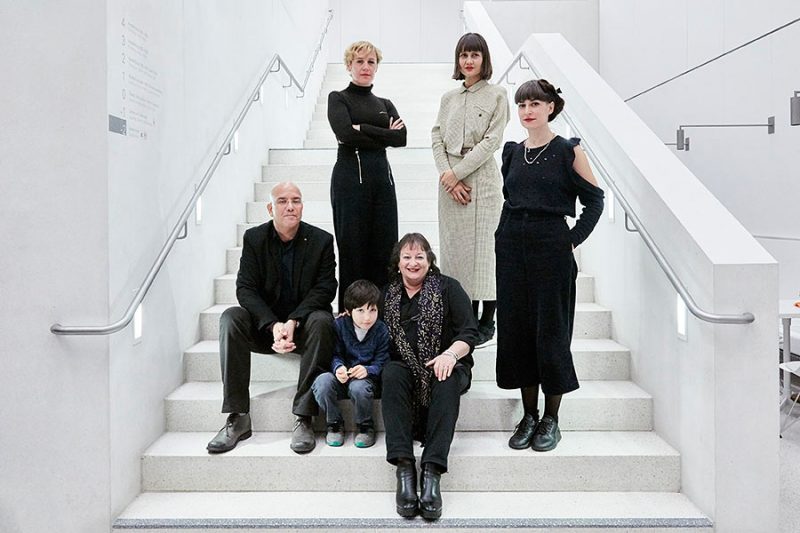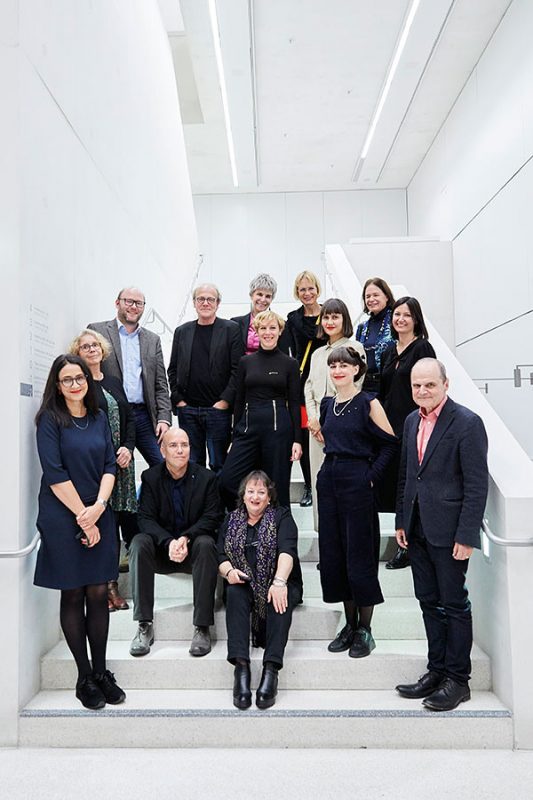Hans-und-Lea-Grundig-Preisträger 2019 Guy Raz in der Jerusalem Post
Über den israelischen Fotografen und Kurator Guy Raz, der den 4. Hans-und-Lea-Grundig-Preis 2019 in der Kategorie «Kunstgeschichte/Kunstvermittlung» gewonnen hat, ist am 10. November 2019 in der Jerusalem Post ein umfangreicher Artikel von Hannah Gal erschienen, in dem auch die Entscheidung der Jury des Hans-und-Lea-Grundig-Preises hervorgehoben wird, Guy Raz für seine Forschungen und sein Engagement zu würdigen: «For his work as a photographer and curator, Raz has been awarded the 2019 Hans and Lea Grundig prize, with judges noting Raz’s life mission to establish an institute for centralizing the region’s photopgraphic archives.»
Hans-and-Lea-Grundig-Prize winner 2019 Guy Raz in the „Jerusalem Post“
On Guy Raz, the Israeli photographer and curator, who won the 4th Hans-and-Lea-Grundig-Prize 2019 in the category „Art History / Art Education“, a comprehensive article by Hannah Gal has been published the „Jerusalem Post“ on November 10, 2019. In this article, the decision of the prize jury is emphasized, to award Guy Raz for his research and his commitment: „For his work as a photographer and curator, Raz has been awarded the 2019 Hans and Lea Grundig prize, with judges noting Raz’s life mission to establish an institute for centralizing the region’s photopgraphic archives.“
7. November 2019
Verleihung des 4. Hans-und-Lea-Grundig-Preises 2019
Vor etwa 70 Gästen ist am Donnerstag, den 7. November 2019, im Auditorium des NS-Dokumentationszentrums München der 4. Hans-und-Lea-Grundig-Preis 2019 in den drei Kategorien Bildende Kunst, Kunstwissenschaft und Kunstvermittlung verliehen worden. Die Veranstaltung wurde in Kooperation mit dem NS-Dokumentationszentrum durchgeführt.
Prof. Dr. Mirjam Zadoff, Direktorin des NS-Dokumentationszentrums München, Foto: © Orla Conoll
Dr. Florian Weis, Geschäftsführendes Vorstandsmitglied der Rosa-Luxemburg-Stiftung, Foto: © Orla Conoll
Dr. Thomas Flierl, Mitglied der Jury des Hans-und-Lea-Grundig-Preises 2019, Foto: © Orla Conoll
Kathleen Krenzlin, Mitglied der Jury des Hans-und-Lea-Grundig-Preises 2019, Foto: © Orla Conoll
Dorit Bearach, Gewinnerin des Hans-und-Lea-Grundig-Preises in der Kategorie «Bildende Kunst», Foto: © Orla Conoll
Florian Weis, Dorit Bearach und Kathleen Krenzlin bei der Übergabe der Preisurkunde, Foto: © Orla Conoll
Dr. Eckhart Gillen, Ko-Vorsitzender der Jury des Hans-und-Lea-Grundig-Preises 2019, Foto: © Orla Conoll
Vesna Vuković vom Kollektiv BLOK, Gewinnerin des Hans-und-Lea-Grundig-Preises in der Kategorie «Kunstvermittlung/Kunstgeschichte», Foto: © Orla Conoll
Vesna Vuković vom Kollektiv BLOK, Gewinnerin des Hans-und-Lea-Grundig-Preises in der Kategorie «Kunstvermittlung/Kunstgeschichte», Foto: © Orla Conoll
Florian Weis, Nina Bacun, Vesna Vuković und Roberta Bratovic vom Kollektiv BLOK sowie Jurysekretär Dr. Oliver Sukrow bei der Übergabe der Preisurkunde, Foto: © Orla Conoll
Prof. Dr. Ines Weizman, Mitglied der Jury des Hans-und-Lea-Grundig-Preises 2019, Foto: © Orla Conoll
Guy Raz, Gewinner des Hans-und-Lea-Grundig-Preises in der Kategorie «Kunstvermittlung/Kunstgeschichte», Foto: © Orla Conoll
Florian Weis, Guy Raz und Ines Weizman bei der Übergabe der Preisurkunde, Foto: © Orla Conoll
Die Gewinner*innen des Hans-und-Lea-Grundig-Preises 2019: Guy Raz, Dorit Bearach, Vesna Vuković, Roberta Bratovic und Nina Bacun (v.l.n.r.) Foto: © Orla Conoll
Verleihung des 4. Hans-und-Lea-Grundig-Preises im NS-Dokumentationszentrum München: Mirjam Zadoff, Kathleen Krenzlin, Oliver Sukrow, Guy Raz, Thomas Flierl, Rachel Stern, Dorit Bearach, Vesna Vuković, Rosa von der Schulenburg, Roberta Bratovic, Nina Bacun, Angelika Timm, Ines Weizman und Eckhart Gillen, Foto: © Orla Conoll
November 7, 2019
Awarding of the 4th Hans-and-Lea-Grundig-Prize 2019
Over 70 guests joined for the awarding of the 4th Hans-and-Lea-Grundig Prize 2019 in the three categories of Fine Arts, Art Studies and Art Education in the auditorium of the Munich Documentation Center of the History of National Socialism on Thursday, November 7, 2019. The event was conducted in cooperation with the Munich Documentation Center of the History of National Socialism.
Guy Raz: ”A Yemenite Portrait” u. a.
Laudatio: Ines Weizman, NS-Dokumentationszentrum München, 7. November 2019
Guy Raz studied photography in Tel Aviv at the School of Art in Tel Aviv, the Bezalel Academy of Art in Jerusalem and later also at the Hebrew University. As a jury, we were impressed by the work and engagement of Guy Raz, that began as a photographer and later moved increasingly to research projects and curating exhibitions. His portfolio shows this very noticeably – how he began his practice as a photographer reflecting on, observing and documenting the country in which he lived and how it was so radically transformed through the history of conflict between Israel and Palestine.
In the early 1990s he managed to capture portraits, streets scenes, landscapes in Gaza, the Westbank, or Lebanon – places to which it is today impossible to travel as an Israeli – at least not in a non-military mission. Over the long period of time we see how the views into the beautiful landscape – and of course, the passages and livelihood of Palestinians – are being interrupted and parcellated by Israeli roadblocks and checkpoints, watchtowers. Raz’ images show sensible scenes of the everyday on both sides of the borderlines. The paradoxical spatial fragmentation and militarization of the land call for the shared humanity of the region. His collection of treacherously-pleasant-to-look-at colourful photographs of painted new roadblocks – opens however to other border structures that go back to earlier military conflicts or to early divisions set up under the colonial orders of the French and the British mandate governments. It involved interviews that Raz conducted over many years with locals, the re-reading of landscapes and historical research. Raz’ trajectory hence evolved from taking, collecting and exhibiting his photographs, which of course, involved the rearrangement and reading of his own archive, to other image archives and collections that had been largely forgotten or that called for new ordering principles and readings.
As a curator Raz set about to research and exhibit early photography in Palestine since 1839 to counter its far-reaching transformations with the scenic and cultural reality of the present. He devoted a particularly noteworthy research to women photographers who were forced to flee the national socialist regime in Europe and who struggled to continue their artistic works in British Mandate Palestine. I do envy you for the key you have to these wonderful treasures of images and collections, and it would be so wonderful if these image collections and your exhibitions could also be shown again or made available to the public in all parts of Israel/ Palestine, in the region and elsewhere internationally.
Working with photographs. Living with photographs. Is always a looking again. And every time we look at them again we are in them – in different details that connect to different histories. And this depends on context. We also need to revisit these photographs and collections presented by Guy Raz with new audiences, but we should also find a way to make them accessible across borders – especially in Israel/ Palestine and the wider region – where photography has been all-too ideologically recorded and encoded. Guy Raz, as you are planning for years to establish an institution devoted to the history of photography of the region, and to make it a medium for exchange between artists and photographers across borders, it would be most delightful if this prize would help you to realise this project.




